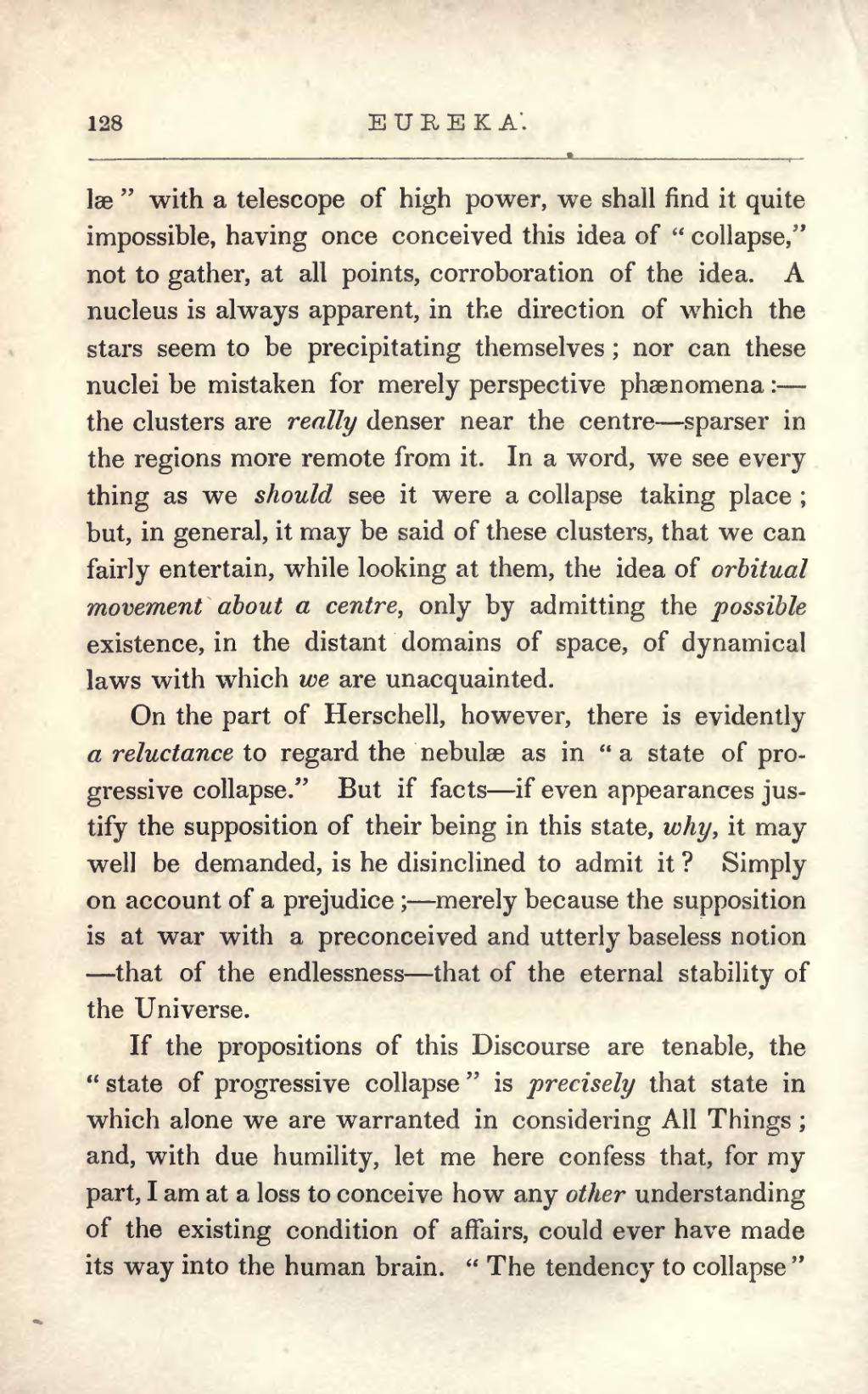læ" with a telescope of high power, we shall find it quite impossible, having once conceived this idea of "collapse," not to gather, at all points, corroboration of the idea. A nucleus is always apparent, in the direction of which the stars seem to be precipitating themselves; nor can these nuclei be mistaken for merely perspective phænomena:—the clusters are really denser near the centre—sparser in the regions more remote from it. In a word, we see every thing as we should see it were a collapse taking place; but, in general, it may be said of these clusters, that we can fairly entertain, while looking at them, the idea of orbitual movement about a centre, only by admitting the possible existence, in the distant domains of space, of dynamical laws with which we are unacquainted.
On the part of Herschell, however, there is evidently a reluctance to regard the nebulæ as in "a state of progressive collapse." But if facts—if even appearances justify the supposition of their being in this state, why, it may well be demanded, is he disinclined to admit it? Simply on account of a prejudice;—merely because the supposition is at war with a preconceived and utterly baseless notion—that of the endlessness—that of the eternal stability of the Universe.
If the propositions of this Discourse are tenable, the "state of progressive collapse" is precisely that state in which alone we are warranted in considering All Things; and, with due humility, let me here confess that, for my part, I am at a loss to conceive how any other understanding of the existing condition of affairs, could ever have made its way into the human brain. "The tendency to collapse"

